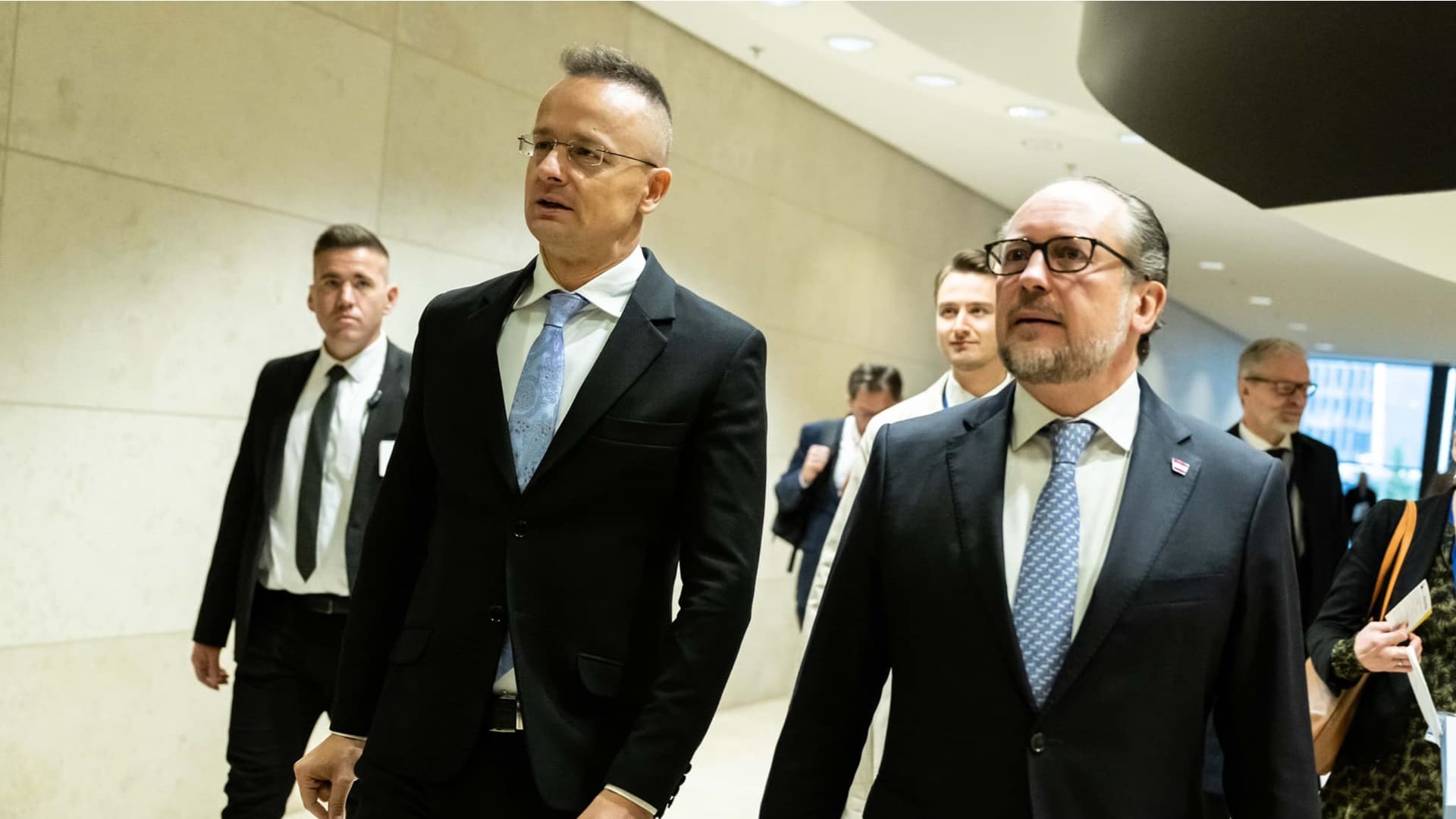The Brussels approach to the situation in Ukraine remains pro-war. In the proposal of the European Commission, which amounts to €20 billion in spending, everything related to the war is included, but there is still nothing in it that addresses how to achieve peace. This was stated by the Minister of Foreign Affairs and Trade Péter Szijjártó in Luxembourg on Monday, 23 October.
According to the Ministry’s statement, Minister Szijjártó spoke up during a meeting following the EU Foreign Affairs Council on the proposals regarding security guarantees for Ukraine. These proposals could provide €20 billion of support for arms shipments and the deployment of a training mission in Ukraine over the next four years. Additionally, they address the development of the European defence industry, and some of them suggest the need for defence industry investment in Ukraine. The reconstruction of Ukraine and the acceptance of further sanctions against Russia are also important elements of the proposals.
‘So, everything related to the war is covered in this proposal, but unfortunately, there is still nothing where Brussels addresses how peace can be achieved. It is clear that the European approach, the Brussels approach, remains pro-war regarding the events in Ukraine,’
Minister Szijjártó said.
‘In Brussels, they expect that there will continue to be war in Ukraine for the next four years, but we do not accept this,’ he emphasized. He pointed out that this is evident from the fact that they would allocate €5 billion annually for further arms shipments over the next four years.
‘If we did not anticipate that there would be war for another four years, why would we need to supply so much weaponry to Ukraine for another four years?’ he asked.
Szijjártó went on to emphasize that Europe continues to suffer from a war psychosis and is not willing to even discuss the possibility of peace. He highlighted that it is believed by Brussels that the solution can only be found on the battlefield, but the past year and a half shows that this is not true.
‘There are casualties and destruction on the battlefield. As the number of casualties increases and the destruction grows, the conditions for peace become increasingly unfavourable…I would also like to say that whether it’s arms manufacturing or the deployment of training on Ukrainian territory, in a war zone, it is completely unacceptable to us, as such a decision would immediately drag the European Union into a war, which is not a security but a political-economic integration,’ he stated.
The Minister also protested against attempts to pressure Hungary on the grounds of security to accelerate Ukraine’s European Union membership.
‘The European Union is not a security organization; it is a political-economic integration project, so justifying a country’s future membership solely on security grounds is completely unacceptable to us,’ stressed. He also mentioned that several of his colleagues have talked about a certain ‘Ukraine fatigue,’ which means it is challenging to maintain public interest in the ongoing war in the Eastern European country, especially now when the Israeli conflict is somewhat overshadowing the events.
‘If this is true, it further underscores the urgency of achieving peace as soon as possible. Because it’s only through peace that we can save lives and prevent destruction,’ Minister Szijjártó.
Related articles:
Sources: Hungarian Conservative/KKM/MTI








